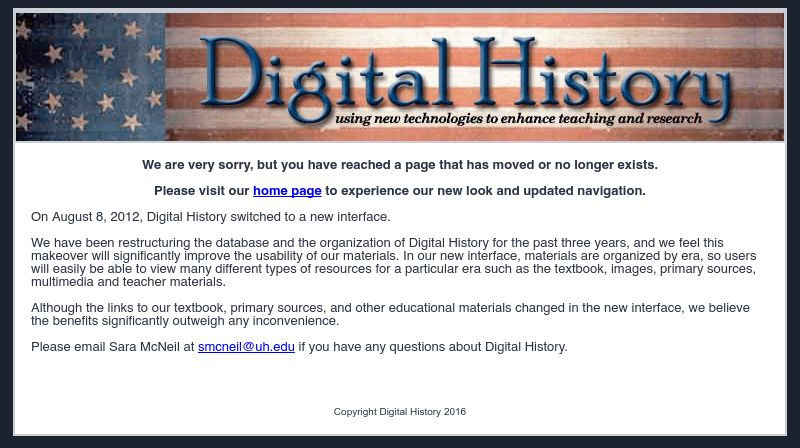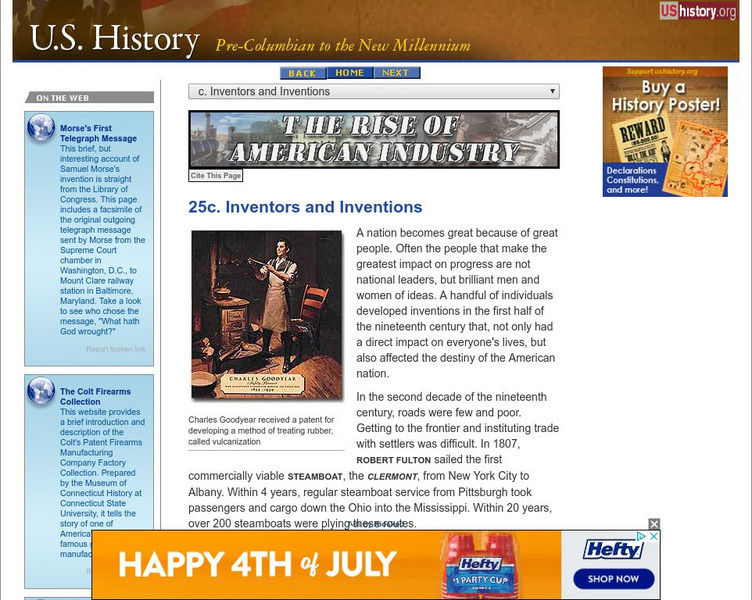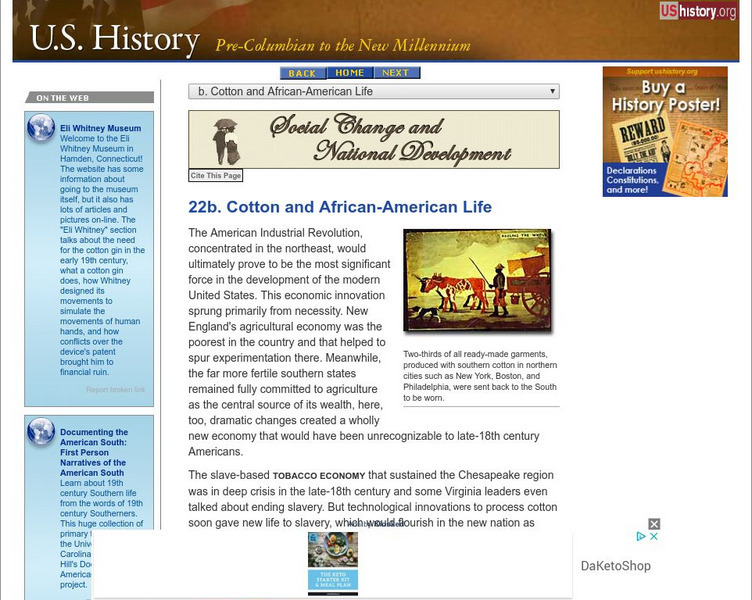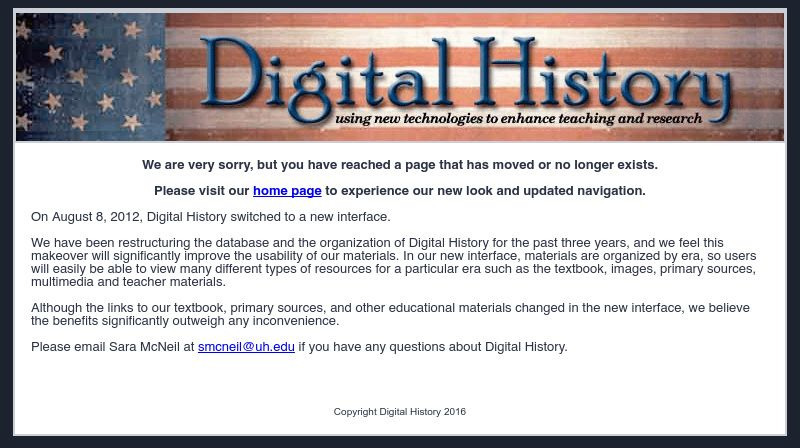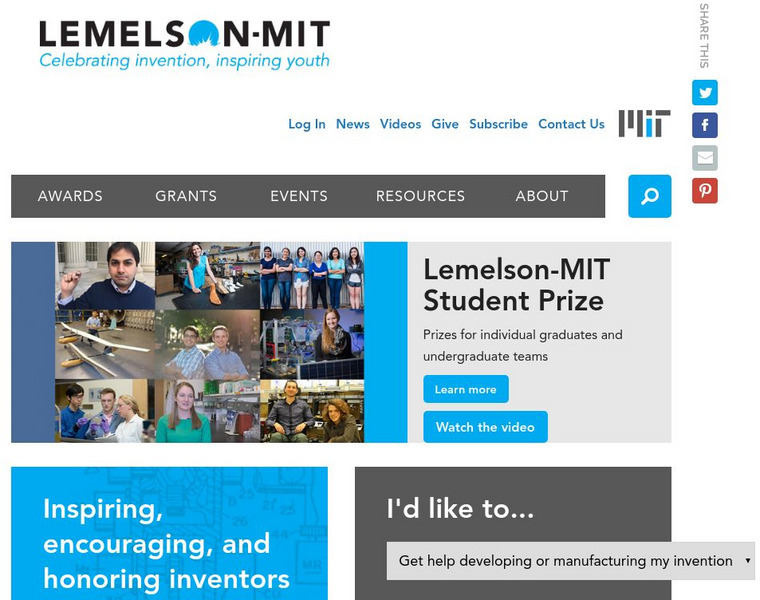Enchanted Learning
Enchanted Learning: Inventors & Inventions From the 1700s
Use this site to learn more about early inventors and inventions from the 18th century. This web page offers text and images on various inventors and their inventions. You can also access information about inventors and inventions from...
Other
Eli Whitney/cotton Gin
A collection of websites on Eli Whitney and his invention, the cotton gin.
Independence Hall Association
U.s. History: The Rise of American Industry
The Industrial Revolution came to America, smuggled in by Samuel Slater, who brought plans for a cotton-spinning mill. See how the growth of industry led to the growth of corporations, the growth of the nation geographically, and the...
Independence Hall Association
U.s. History: The Crowning of King Cotton
Read how an invention made it possible to increase the amount of cotton available for export, thus leading to an increase in the number of acres planted in cotton, and resulting in the need for more and more slaves. Before the invention...
Read Works
Read Works: The Industrial Revolution: Making Cloth
[Free Registration/Login Required] This informational text passages shares facts about the beginning of the Industrial Revolution. This passage is a stand-alone curricular piece that reinforces essential reading skills and strategies and...
PBS
Wnet: Thirteen: Wake Up, America: Industrial Revolution in America [Pdf]
A lesson plan from the producers of the 16-episode PBS series "Freedom: A History of US" that looks at the technological advances of early nineteenth-century America and the birth of the Industrial Revolution in America.
Georgia Humanities Council and the University of Georgia Press.
New Georgia Encyclopedia: Cotton
Encyclopedia article portraying the importance of cotton to Georgia's agricultural economy during the Civil War up until World War I.
Digital History
Digital History: Early Industrialization
Advances in technology affected manufacturing in the North and farming in the South. Read about how America turned from a country where most products were made in the home to an economic power that used factory production.
PBS
Pbs: Africans in America: Part 3: Eli Whitney's Cotton Gin
History of Eli Whitney and his cotton gin. Other links to sites with information on this topic.
US National Archives
Nara: Teaching With Documents: Revolution and the New Nation (1754 1820s)
Links to primary source documents from the revolution to the new nation.
Independence Hall Association
U.s. History: Inventors and Inventions
The industrial revolution in America spawned the inventions of many inventors, who improved technology in many different areas. See how transportation, agriculture, and communications were transformed because of these inventions.
Independence Hall Association
U.s. History: Cotton and African American Life
But for the invention of the cotton gin, slavery perhaps would have died out in the United States in the early 19th century. Read about why technological advances caused the spread of slavery in the South and read about how slaves clung...
US National Archives
Nara: Teaching With Documents: Eli Whitney's Patent for the Cotton Gin
This National Archives and Records Administration site relates the history of Eli Whitney and his remarkable inventions. Links to sites with patent information on the cotton gin. Tons of teacher's resources can be found at this site.
University of Houston
University of Houston: Engines of Our Ingenuity: No. 1252: Interchangeable Parts
A fun-to-read article on the history of interchangeable parts. Find out that Eli Whitney was not the first to have this manufacturing idea, but he capitalized on it. This is a transcript of an accompanying radio broadcast.
TED Talks
Ted: Ted Ed: How Inventions Change History (For Better and for Worse)
A brief video that describes the unintended consequence of Eli Whitney's cotton gin. [5:14] Followed by a quiz and a list of additional resources to explore.
Digital Public Library of America
Dpla: Cotton Gin and the Expansion of Slavery
The sources in this primary set document the invention of the cotton gin and the expansion of slavery. Includes teaching guide.
Digital History
Digital History: Antebellum Slavery
The ideals of liberty after the Revolutionary War brought freedom to many slaves. Read about why the institution of slavery rebounded after the introduction of the cotton gin.
Wikimedia
Wikipedia: Eli Whitney
This Wikipedia online encyclopedia site offers a brief biography of Eli Whitney (1765-1825 CE), inventor of the cotton gin and many other things. The encyclopedia entry provides many hyperlinks to terms as well as an illustration of...
Science4Fun
Science4 Fun: Cotton Gin
Illustrated article discusses Eli Whitney, the inventor of the cotton gin, and how the cotton gin works.
Massachusetts Institute of Technology
Mit: Inventor of the Week: Eli Whitney
This site from the MIT Invention Dimension provides the history of Eli Whitney's cotton gin. Important part of the Industrial Revolution.
Curated OER
Smithsonian Education: Spotlight Biography Inventors
This site provides information on American inventors Benjamin Franklin, Robert Fulton, Eli Whitney, Thomas Jefferson, Isaac Singer, Wilbur Wright, Thomas Alva Edison, Elias Howe, and Alexander Graham Bell. It offers pictures from and...



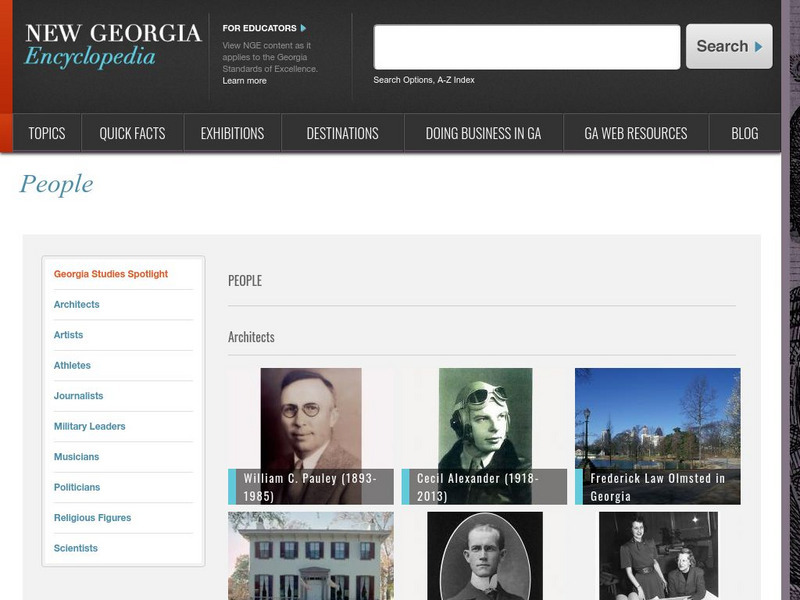
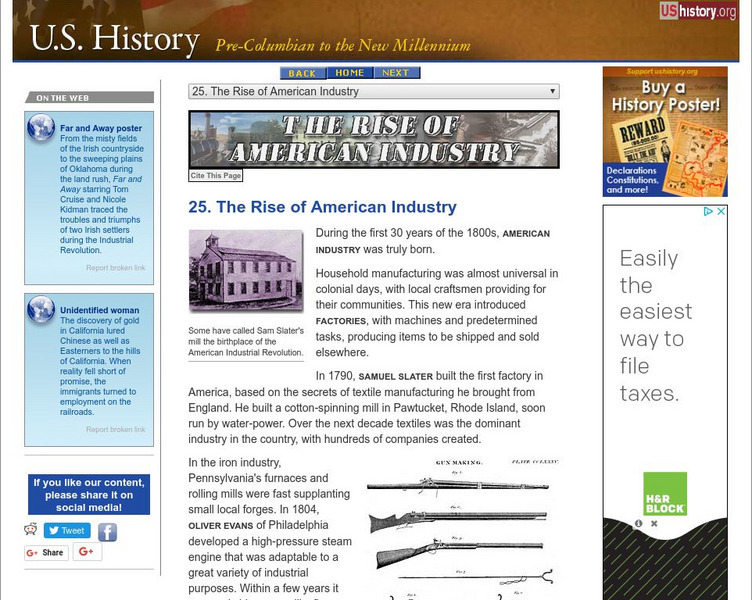
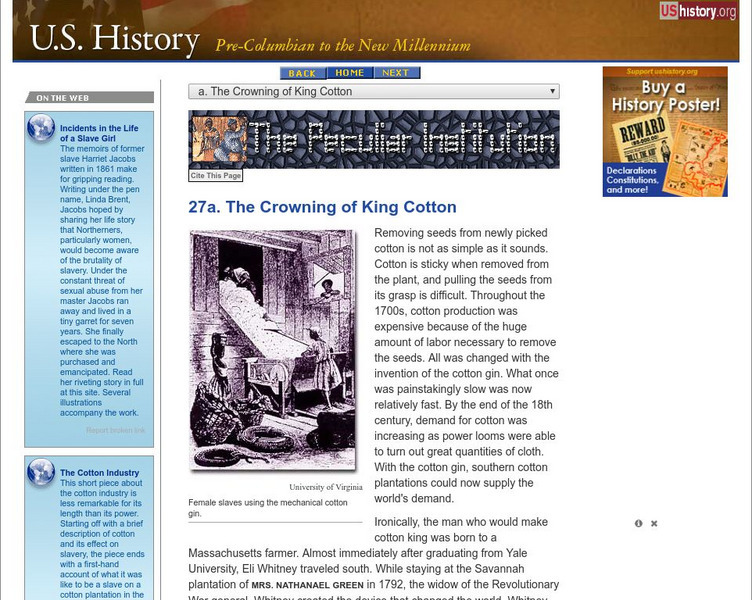

![Wnet: Thirteen: Wake Up, America: Industrial Revolution in America [Pdf] Lesson Plan Wnet: Thirteen: Wake Up, America: Industrial Revolution in America [Pdf] Lesson Plan](https://d15y2dacu3jp90.cloudfront.net/images/attachment_defaults/resource/large/FPO-knovation.png)

